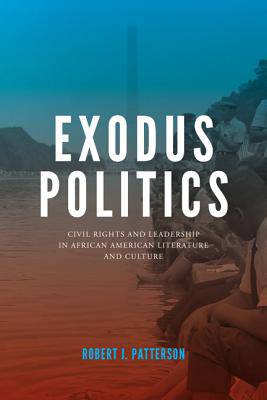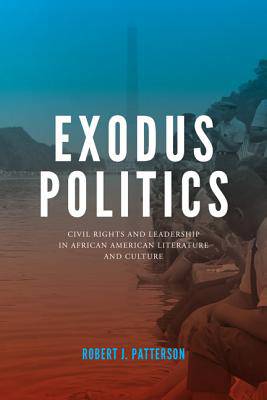
- Afhalen na 1 uur in een winkel met voorraad
- Gratis thuislevering in België vanaf € 30
- Ruim aanbod met 7 miljoen producten
- Afhalen na 1 uur in een winkel met voorraad
- Gratis thuislevering in België vanaf € 30
- Ruim aanbod met 7 miljoen producten
Exodus Politics
Civil Rights and Leadership in African American Literature and Culture
Robert J PattersonOmschrijving
Using the term "exodus politics" to theorize the valorization of black male leadership in the movement for civil rights, Robert J. Patterson explores the ways in which the political strategies and ideologies of this movement paradoxically undermined the collective enfranchisement of black people. He argues that by narrowly conceptualizing civil rights in only racial terms and relying solely on a male figure, conventional African American leadership, though frequently redemptive, can also erode the very goals of civil rights.
The author turns to contemporary African American writers such as Ernest Gaines, Gayl Jones, Alice Walker, and Charles Johnson to show how they challenge the dominant models of civil rights leadership.
He draws on a variety of disciplines--including black feminism, civil rights history, cultural studies, and liberation theology--in order to develop a more nuanced formulation of black subjectivity and politics.
Patterson's connection of the concept of racial rights to gender and sexual rights allows him to illuminate the literature's promotion of more expansive models. By considering the competing and varied political interests of black communities, these writers reimagine the dominant models in a way that can empower communities to be self-sustaining in the absence of a messianic male leader.
Specificaties
Betrokkenen
- Auteur(s):
- Uitgeverij:
Inhoud
- Aantal bladzijden:
- 216
- Taal:
- Engels
- Reeks:
Eigenschappen
- Productcode (EAN):
- 9780813935256
- Verschijningsdatum:
- 29/11/2013
- Uitvoering:
- Hardcover
- Formaat:
- Genaaid
- Afmetingen:
- 157 mm x 231 mm
- Gewicht:
- 430 g

Alleen bij Standaard Boekhandel
Beoordelingen
We publiceren alleen reviews die voldoen aan de voorwaarden voor reviews. Bekijk onze voorwaarden voor reviews.











